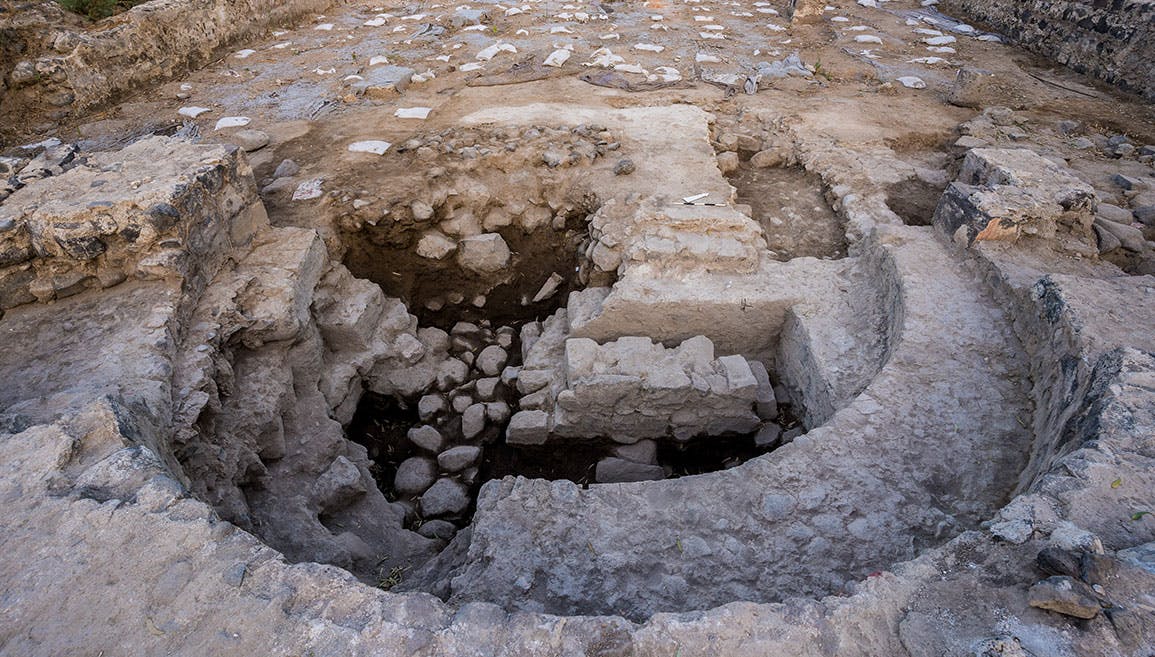Many Names, One Meaning

Joyeux Noël! Heri ya Krismasi! Frohe Weihnachten! Merry Christmas!
Around the world, people are wishing one another season’s greetings as we prepare to commemorate the birth of Jesus. At Museum of the Bible, we’re celebrating Christmas around the world under our theme, “Many Names, One Meaning.” The idea behind this theme came from looking at the many greetings for the holiday – like those listed above. As we gathered the different ways to say “Merry Christmas” around the globe, we noticed some trends that in turn raised the question: While Christmas and Krismasi look to be clearly related, what about Noël, or Weihnachten? These don’t sound like “Christmas” or even have the word “Christ” in them. But when looking for their meaning, dictionaries and online translators all said they meant, “Merry Christmas.” So, we decided to look deeper into what these many greetings really mean.
Let’s start at home, with Christmas. Across the English-speaking world, the word Christmas marks the season culminating in the celebrations on December 25. But what about the word itself? Let’s dissect it. The first part is easy: Christ. Christ is the Greek translation of the Hebrew mashiach, or messiah, meaning “anointed.” The name Jesus Christ identifies him as the Messiah for Christians. But what about the -mas?
We don’t see the ending -mas attached to many words that could otherwise stand alone in English today. But Christmas is not alone in having the ending -mas. There are two others: Michaelmas and Candlemas. Together with Christmas, these three words mark feast days on the liturgical calendar celebrating, respectively, Christ’s birth, the archangels Michael, Gabriel, and Raphael, and Jesus’s presentation in the temple. (The candles symbolize Jesus as the “light of the world” [John 8:12].) The worship service on these holy days is called the Mass. In the twelfth century, these feasts were still spelled as two separate words, for example from an Old English chronicle of 1123 where it’s spelled Χρes mæssan. But just two hundred years later we see the ancestor of our word in the forms cristesmesse, cristmasse, crystmasse, and more; today’s Christmas. And the worship of Christ still marks the meaning of our holiday.
Like English “Christmas,” the German word Weihnachten is also a compound. Like Christmas, its spelling and pronunciation has varied through the ages. And just as Christmas was two words in the 1100s, so, too, was Weihnachten, which appears as wīhe naht in a Middle High German manuscript, but already by the beginning of the fourteenth century is joined as wīenacht and wīnaht. But this is where its similarities with English Christmas end. While Christmas means Christ’s Mass, German Weihnachten comes from weih(en), meaning “consecrated, sacred,” and nacht, meaning “night.” The “sacred night” is none other than that of Jesus’s birth, as told in the Gospel of Luke, chapter 2. But while Weihnachten refers to the time of the event, the next name is named after the event itself.
By the fifth century AD, the holiday of Christmas was known by the Latin phrase dies natalis christi, the “day of the birth of Christ.” The Latin word natalis is well known in English— it is the base of words like natal, native, and nation, among others — and also of nativity, “birth.” This name for the holiday we call Christmas was eventually shortened to just the word natalis, and this word became the name for Christmas wherever Latin was dominant, eventually becoming the words we know today in many of the Romance languages: in Italian, natale, in French, noël, in Spanish, navidad, in Portuguese, natal. As the word used by the church, it was taken up in translation by Christian cultures, as well as those who encountered them. Thus, in Russian- and Slavic-speaking countries, rozhdestva, the word for birth, is used. In Semitic and Semitic-influenced languages, the root wld, “to be born,” marks the holiday: in Hebrew, molad, in Maltese, milied, in Arabic, milad.
As Catholic and Orthodox missionaries traveled, the new civilizations they encountered made their own translations of “birth” or simply adopted a pronunciation of the Latin natalis. For instance, Mandarin Chinese translates the birth as shèngdàn, meaning “holy birth,” while in Indonesia and Java, the word natal has been borrowed and is combined with greetings in the local language to mark the holiday — Selamat Natal and Sugeng Natal, respectively.
The option to translate or borrow works well for a word that exists in all languages, such as “birth.” However, in the case of a word like Christmas, which includes proper nouns, borrowing the word is far easier than making a serviceable translation. Accordingly, in places influenced by English-speaking missionaries and cultures, the word Christmas was adopted directly into the local language, giving us forms like Krismasi (Swahili), Kirsimeti (Hausa), Khrisimasi (Chichewa), and Ukhisimusi (Zulu) from Africa, Krisamasa (Gujarati), Krisamas (Hindi), and Karisamasa (Punjabi) in India, and forms like Kurisumasu (Japanese) and Keuliseumaseu (Korean) in the Far East.
As you can see, there are many names for the holiday we call Christmas, but they all go back to one event. So, the next time you hear the song, “O, Holy Night,” or see or sing the word Noël, Navidad, or Christmas, remember these are just some of the many ways to name a single event: the holy night, the birth, the worship of Christ — many names, one meaning. Merry Christmas.


